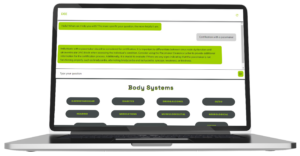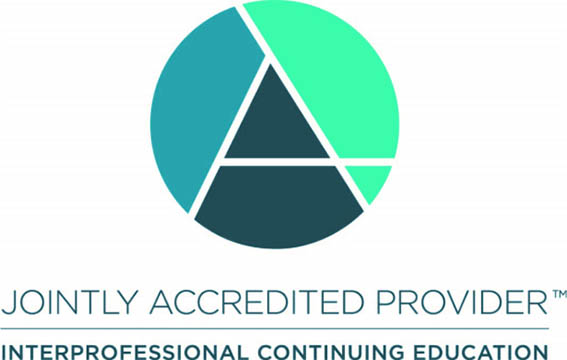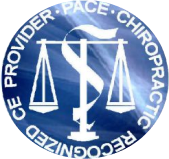DOT Medical Examiner Certification Training
Provide DOT physical exams for drivers of commercial motor vehicles (CMV) by becoming a DOT certified medical examiner.
- The ONLY NRCME certification course created by a member of the original DOT Training Development Team
- 98% of students agree that our DOT medical examiner training helped them pass the certification exam
Contact us about clinic and group registrations


7 Continuing Education Credits
AMA PRA Category 1 Credits™, ANCC, ACCME (Equal to AANP) & PACE Chiropractic CE credits.


Sample NRCME Exams
280+ practice test questions & two sample NRCME exams that mirror the certification test . No limit to amount of retakes.


TeamCME Medical Examiner Reference Manual
Use as a study guide and a quick reference during medical exams


FREE 60-Day Subscription to DOT Exam Expert
The all-in-one resource for medical examiners.

How to Pass the NRCME Exam
This lecture offers the secrets needed to successfully pass the certification exam.

Guide to NRCME Certification
Step-by-step instructions, walking you through the entire certification process!

Training Certificate
Your certificate is available immediately upon completion.

Exceeds FMCSA Requirements
Training exceeds the Federal Motor Carrier Safety Administration core curriculum requirements.

Bonus Video
We want your DOT medical practice to thrive so we’ve added the video “Building Your DOT Medical Practice”.
What you’ll learn
- How to pass the NRCME certification exam
- Understand the role of Certified Medical Examiners
- Learn to perform a thorough DOT physical exam on drivers of commercial motor vehicles
- How to make confident CDL driver qualification determinations every time
- Recognize current FMCSA regulations, guidelines, and advisory criteria.
- Effectively communicate with drivers and motor carriers regarding FMCSA medical standards
Curriculum
There are 9 video modules in this course, 2 lessons, and practice tests that will leave you feeling well-prepped and confident when taking the certification exam.
Continuing Education Credits for NRCME Certification
This is the information we are required to provide in order to offer continuing education credits for NRCME certification.
What’s included
- Faculty
- Educational Objectives
- Entities providing the CE credits
- Method of Participation and Certificate of Completion
- Disclosure of Conflicts of Interest
- Hardware & Software Requirements
- Disclosure of Unlabeled Use
- Disclaimer
Introduction, Definitions, & Forms – 50 minutes
FMCSA Overview
- Functions and Structure
- Office of Medical Programs
Regulations vs. Guidelines
- Definitions and Differences
- FMCSA Medical Examiner Handbook
Federal Motor Carrier Safety Regulations (FMCSRs)
- Driver DOT Medical Certification Requirements
- Important FMCSA Regulatory Definitions
Driver Qualifications
- CDL Licensing and Medical Certification
- Motor Carrier Medical Standards
- Compliance Requirements
- Driver Hours of Service
Interstate vs Intrastate Commerce
- Definitions
- Which drivers need a DOT physical exam?
- Issuing a Medical Examiner’s Certificate
DOT Medical Examiner’s Responsibilities
- Qualifications and Examination Protocols
- Determination Pending Guidelines
Federal Exemptions and Skill Performance Evaluation (SPE)
- Exemption Programs
- Applying for Exemptions and SPE
CDL Driver Examination Forms and Records
- Medical Examination Report Form (MCSA-5875)
- Medical Examiner’s Certificate (MCSA-5876)
- Record Retention Requirements
Medical Forms for Special Conditions
- Insulin-Treated Diabetes Mellitus Assessment Form (MCSA-5870)
- Vision Evaluation Report (MCSA-5871)
- Non-Insulin-Treated Diabetes Mellitus Assessment Form (MCSA-5872)
- CMV Driver Medication Form (MCSA-5895)
4 Question Practice Quiz
Vision & Hearing – 26 minutes
Vision Standard
- Driver Vision History
- FMCSA Vision Requirements
- Color Perception Guidelines
Vision Testing Procedures
- Visual Acuity Test
- Field of Vision Test
- Ocular Motility, Accommodation, and Convergence
Vision Conditions and Documentation
- Monovision vs. Monocular Vision
- Telescopic Lenses
- Eye Professional Documentation
Failure to Meet Vision Standards
- Alternative Vision Standard for Monocular Vision
- Steps for Certification under Alternative Vision Standard
- Ocular Conditions Requiring Specialist Referral
Specific Eye Conditions
- Cataracts
- Glaucoma
- Macular Degeneration
- Retinopathy
- Xanthopsia
Hearing Standard
- Hearing Requirements and Testing
- Whisper Test
- Audiometric Testing
Ear Examination
- Tympanic Membrane and Canal Inspection
- Common Ear Conditions
Hearing Aids and Related Devices
- Acceptable Use of Hearing Aids
- Cochlear Implants
Practice Scenario
- Case Study: Hearing Loss Evaluation
Practice Quiz – 4 Questions
Cardiovascular – 32 minutes
Hypertension
- Hypertension Concerns
- Hypertension Guidelines and Stages
- Making the certification determination
- Common Hypertension Medications
Cardiovascular Disease (CVD)
- Certification Considerations
- Cardiovascular Medications
- Documentation and Evaluation
- Heart Transplantation
- Syncope and Pre-syncope
Peripheral Vascular Disease and Aneurysms
- Venous Thromboembolism and Deep Vein Thrombosis (DVT)
- Pulmonary Emboli
- Intermittent Claudication and Rest Pain
- Abdominal and Thoracic Aortic Aneurysms
Arrhythmias
- Pacemakers
- Implantable Cardioverter-Defibrillator (ICD)
- Supraventricular and Ventricular Arrhythmias
Cardiovascular Testing and Metrics
- Exercise Tolerance Test (ETT)
- Echocardiogram (ECHO)
Coronary Heart Diseases
- Myocardial Infarction (MI)
- Angina Pectoris
- Coronary Artery Bypass Grafting (CABG)
- Congestive Heart Failure
- Percutaneous Coronary Intervention (PCI)
Congenital Heart Disease
- Types and Certification Considerations
Cardiomyopathy
- Hypertrophic Cardiomyopathy
- Restrictive Cardiomyopathy
Valvular Heart Diseases
- Heart Murmurs and Classifications
- Specific Conditions (e.g., Aortic Regurgitation, Aortic Stenosis)
- Aortic Valve and Mitral Valve Repair Options
Practice Quiz – 4 Questions
Diabetes, Gastrointestinal (GI) & Genitourinary (GU) – 25 minutes
GI and GU Health
- History and Physical Examination
- Abdominal and GU Exam
- Labs and Organ-Specific Tests
GI/GU Conditions and Certification
- Hernia
- Nephropathy
- Dialysis
- Kidney Transplants
Urinalysis Details
- Specific Gravity
- Urinary Glucose
- Protein
- Occult Blood
- CLIA Certificate of Waiver
Diabetes Management
- Non-Insulin-Treated Diabetes Mellitus
- Insulin-Treated Diabetes Mellitus (ITDM)
- Monitoring and ITDM Certification Requirements
ITDM Standards and Compliance
- Driver and Treating Clinician Requirements
- ITDM Assessment Form
- Severe Hypoglycemic Episodes
- State Issued Waivers and Exemptions
Thyroid Disease
- Hypothyroidism
- Hyperthyroidism
- Thyroiditis
Practice Quiz – 4 Questions
Respiratory – 40 minutes
Respiratory Qualifications for Driving
- Conditions Impacting Driving Ability
- Respiratory Evaluation Criteria
Physical Examination Indicators
- Lung Sounds and Abnormalities
- Pulmonary Testing (e.g., PFT, Spirometry)
Respiratory Disorders
- Allergic Rhinitis
- Asthma
- Hypersensitivity Pneumonitis
Sleep-Related Breathing Disorders
- Narcolepsy and Idiopathic Hypersomnia
- Obstructive Sleep Apnea (OSA)
- OSA Testing and Compliance Requirements
Chronic Respiratory Conditions
- Tuberculosis (TB)
- Chronic Obstructive Pulmonary Disease (COPD)
- Cystic Fibrosis
- Interstitial Lung Disease
Other Respiratory Concerns
- Pneumothorax (Traumatic and Spontaneous)
- Cor Pulmonale
- Chest Wall Deformities
Practice Quiz – 4 Questions
Musculoskeletal – 21 minutes
Musculoskeletal Qualifications for Driving
- Relevant Medical Standards
- Acute vs. Progressive Conditions
Musculoskeletal Examination
- Spine and Extremities Assessment
- Range of Motion and Strength Requirements
- Grasp and Prehension Abilities
Musculoskeletal Diseases
- Conditions with Abnormal Muscle Activity
- Multiple Sclerosis
- Parkinson’s Disease
- Other Neuromuscular Disorders
Skill Performance Evaluation (SPE)
- SPE Eligibility and Application Process
- Fixed Deficit Requirements and Restrictions
- Driving Demonstrations and FMCSA Oversight
Practice Scenarios
Practice Quiz – 4 Questions
Neurological Conditions – 24 minutes
Neurological Exam
- Key Assessment Areas (e.g., Reflexes, Sensory, Motor Function)
- Nerve Roots and Myotomes
Seizure Disorders
- Non-Discretionary Seizure Guidelines
- Single Provoked vs. Unprovoked Seizures
- Epilepsy
- Federal Seizure Exemption
Headaches, Vertigo, and Dizziness
- Types of Headaches
- Incapacitating Symptoms and Driving
- Meniere’s Disease
Infections and Tumors of the CNS
- CNS Infections
- Central Nervous System Tumors
Static Neurological Conditions
- Embolic and Thrombotic Stroke
- Transient Ischemic Attack (TIA)
- Intracerebral and Subarachnoid Hemorrhage
Traumatic Brain Injury
- Types and Severity
- Cognitive and Physical Impairments
Practice Quiz – 4 Questions
Mental Health – 21 minutes
Psychological (Mental) Disorders
- Medical Advisory Criteria
- Key Risks for Driving Safety
- Evaluation Criteria for Certification
Psychiatric Medications
- Antidepressants and Antipsychotics
- Anxiolytics, Stimulants, and ECT
- Considerations for Medication Side Effects
Mental Health Conditions
- ADHD
- Bipolar Disorder
- Major Depression
- PTSD
- Personality Disorders
- Schizophrenia and Related Psychotic Disorders
Cognitive Disorders
- Dementia and Alzheimer’s Disease
Practice Quiz – 4 questions
Medication Standard, Drug, and Alcohol Abuse – 22 minutes
Medication Standard
- Controlled Substances and Schedule I Drugs
- Prescription Exception Criteria
- Prescription and OTC Medication Assessment
Drug Testing Requirements
- Types of Testing (Pre-Employment, Post-Accident, etc.)
- Substance Abuse Resources (MRO, SAP)
Marijuana, THC, and CBD
- THC Limitations and Federal Regulations
- CBD Products and Non-DOT Drug Testing
Alcohol Abuse
- Evaluation and Screening (e.g., CAGE Questionnaire)
- Certification Considerations and SAP Involvement
Practice Quiz – 4 questions
Training Evaluation
Your training certificate will be generated immediately upon completion of the course evaluation.
How to Pass the NRCME Exam
Our training exceeds the FMCSA core curriculum and covers everything you should know as a medical examiner. This is not necessarily the same as what should be known for the test. These insights were created to help to span the gap.
For each subject, we provide additional points and things to review that you are likely to see on the certification exam.
Sample NRCME Exams
280+ practice test questions and two sample NRCME exams of 120 questions that mirror the questions on the certification test. Each question is accompanied with an explanation.
The questions are specifically constructed to challenge your preparedness and augment your ability to pass the actual certification test.
Guide to NRCME Certification
Now that you’ve completed the course, what’s next? This lesson is an outline that guides you through each step.
- Downloading Your TeamCME Certificate of Completion
- Creating a National Registry Account (if not already created)
- Uploading Your Certificate onto the National Registry
- Registering for the Certification Exam
- Obtaining Your National Registry Certificate
Pass the NRCME certification exam or we’ll provide a refund!
Get Your Training From the Source
TeamCME’s founder, Dr. Michael Megehee, has been training medical examiner to perform DOT physical since 1996. He was one of the medical practitioners tasked by the Federal Motor Carrier Safety Administration (FMCSA) to create the curriculum and write test questions for the National Registry of Certified Medical Examiners (NRCME).
In 2012, he was designated as an NRCME Champion by the chief administrator of FMCSA, Anne S. Ferro.
This course was co-developed by Dr. Megehee and Dr. Carlson. Together they have trained thousands of medical examiners.

FMCSA Accreditation
TeamCME was one of the first training organizations to receive accreditation from the FMCSA. However, FMCSA stopped accrediting NRCME training institutions several years ago.
We have developed a close relationship with FMCSA, including the Chief Medical Officer choosing our training above all others for his recertification.
What Our Clients Say
I ended up purchasing a second course last minute. It was terrible. Outdated. Likely did more harm than good. I didn’t realize how good your product was until I saw the competition.
I liked the course layout. I felt it was presented in an easy-to-understand way and hit the highlights of what we need to know.
Articles
FAQs
What is NRCME certification?
The National Registry of Certified Medical Examiners (NRCME) is a Federal program that establishes requirements for healthcare professionals that perform physical qualification examinations and issue medical certificates for truck and bus drivers. To become a certified medical examiner (ME) and be listed in the National Registry, healthcare professionals must complete training and testing on the Federal Motor Carrier Safety Administration’s (FMCSA) physical qualifications standards and guidelines.
How do I become a DOT certified medical examiner for CDL medical exams?
Becoming a certified medical examiner is easy. Just follow these steps:
1. Register and complete our training program to obtain your Certificate of Completion, which is required for your application to sit for the NRCME Certification Exam.
2. Using this certificate of completion, apply for your account and 10-digit National Registry number on the National Registry of Certified Medical Examiners website located at https://nationalregistry.fmcsa.dot.gov/home
3. FMCSA will issue the 10-digit registry number and then verify your credentials.
4. Use your National Registry number to schedule and sit for the $79 certification exam. Locate a local testing location to take your NRCME Examination. (Click on a testing organization below to access their site and schedule your exam.) appointment.
Testing Organization Websites:
Prometric https://www.prometric.com/
PSI Exams https://psiexams.com/
Be sure to bring the following items to the testing location:
- A valid state issued picture ID
- Valid license to practice in your healthcare profession
- Certificate of completion provided by NRCME Training Online
- Your National Registry Medical Examiner identification number
After Passing the FMCSA Medical Examiner Certification Test:
You will receive a Medical Certification credential valid for 10 years and be listed on the National Registry
As an NRCME examiner, you will now:
- Report results of driver exams every month
- Submit to periodic monitoring and audits
- Maintain certification by completing periodic training every 5 years
- Take and pass the certification exam every 10 years.
Review the complete guide to NRCME Certificate by clicking on this link: Complete Guide to NRCME Certification.
Who can be a FMCSA medical examiner and perform DOT physical exams?
Medical providers eligible to sit for the National Registry exam include Doctors of Medicine, Doctors of Osteopathic Medicine, Doctors of Chiropractic, Advanced Practice Nurses, Advanced Practice Registered Nurses, Naturopathic Doctors, Doctors of Nursing Practice, Clinical Nurse Specialists, Nurse Practitioners and Physician Assistants. Acupuncturist in Florida; Doctor of Physical Therapy in Arkansas, Louisiana, North Dakota and Texas; Doctor of Oriental Medicine in New Mexico; and Registered Nurse in Colorado are all eligible to become certified Medical Examiners.
The above listed providers must meet the following criteria:
- Possess a valid and current medical license, certificate or registration in the jurisdiction where they will perform these examinations, in accordance with applicable state laws and regulations
- Complete our accredited NRCME training course and obtain a Certificate of Completion
- Obtain a personal National Registry Number from the Federal Motor Carrier Safety Administration (FMCSA) by registering in the National Registry of Certified Medical Examiners.
- Register and pass the NRCME Certification Exam from an FMCSA-approved testing organization
How long is NRCME certification good for?
Certified Medical Examiners (MEs) are certified for 10 years from the original certification date. During their ninth year of certification, they must take a recertification training and pass the National Registry certification test.
There is also a required 5-year periodic training which the FMCSA provides online at no cost. This is made available for free online through the medical examiners National Registry account. This must be completed during the fourth year of certification.
What is included in the NRCME certification training?
The TeamCME training program was developed by an FMCSA-appointed Original Subject Matter Expert.
It consists of 9 learning modules. Our video lecture format is easy to follow and guides the clinician through performing a thorough driver history, physical exam, and determining driver fitness to operate a commercial motor vehicle. Additional lessons include “How to Pass the NRCME Exam” and “Guide to NRCME Certification”.
Upon completion, the trainee can download and print a certificate of completion, qualifying them to sit for the National Registry Exam.
Training Includes:
- 7 AMA PRA Category 1 Credits™, ANCC, ACCME (AANP equivalent) or PACE Chiropractic CE credits upon program completion
- 280+ practice test questions & two sample NRCME exams
- 60-day free trail of DOT Exam Expert
- TeamCME Medical Examiner Reference Manual
- Lecture: How to Pass the NRCME Exam
- Step-by-step guide to NRCME certification
- Training certificate available immediately upon completion
- Exceeds FMCSA Requirements
- Bonus Video: Building Your DOT Medical Practice
How long is the NRCME training course?
There are 9 video modules equaling approximately 4.5 hours. The course also contains two lessons that take about a half an hour to review. Finally, there are two sample NRCME exams of 120 questions to mimick the actual certification test for which you are given 2 hours to complete.
Can I stop and start the training as needed?
Yes. The course and all its content is available at any time. When you pause your training, the course will keep track of where you left off. Even after completion, you can go back and review the material.
Can I review the material multiple times?
Yes. Your training is valid for one year. All of the material including video modules, lectures, documents, and sample NRCME exams can be reviewed as much as needed.
The 250+ practice test questions and sample NRCME exams can be taken as many times as you like.
When will I get my NRCME training certificate?
Your training certificate will be available to download immediately upon completion of the online training evaluation that is within the course content. It can be found in your training portal.
What happens if I fail the NRCME certification test?
If you don’t pass, you can schedule a time to retake the test as soon as the next day if you choose.
What equipment is needed to perform a DOT physical exam?
The following equipment is needed:
- The ability to measure height and weight
- A finger pulse oximeter
- A stethoscope
- 2-3 different sizes of blood pressure cuffs
- A Snellen eye chart
- An eye occluder
- An ophthalmoscope and otoscope
- A reflex hammer
- Urinalysis supplies
Continuing Education for NRCME Certification
This training is jointly provided by the Postgraduate Institute for Medicine, the Providers of Accredited Chiropractic Education (PACE), and TeamCME.

In support of improving patient care, this activity has been planned and implemented by the Postgraduate Institute for Medicine and Team CME. Postgraduate Institute for Medicine is jointly accredited by the Accreditation Council for Continuing Medical Education (ACCME), the Accreditation Council for Pharmacy Education (ACPE), and the American Nurses Credentialing Center (ANCC), to provide continuing education for the healthcare team. They can be contacted by calling 1-800-423-3576.
The Postgraduate Institute for Medicine designates this enduring material for a maximum of 7 AMA PRA Category 1 Credit(s)™. Physicians should claim only the credit commensurate with the extent of their participation in the activity.

The FMCSA Accredited National Registry of Certified Medical Examiners Training is approved for 7 continuing medical education credits.
It is intended for Doctors of Medicine (MD), Doctors of Osteopathy (DO), Doctors of Nursing Practice (DNP), Nurse Practitioners (NP), Physician Assistants (PA), Advanced Practice Nurses and Registered Nurses (APN & APRN), Chiropractors, and Physical Therapists (PT) in select states.
Faculty:
Dr. Michael Megehee, Founder of TeamCME, NRCME Champion
Dr. Jeffrey Carlson, TeamCME Co-CEO & Cheif Medical Officer
Release date: August 17, 2020
Expiration date: August 18, 2025
Educational Objectives:
Upon completion, the participant should be better able to:
- Recognize current medical standards, advisory criteria, and guidelines
- Describe the role of Certified Medical Examiners
- Apply the FMCSA medical standards in determining driving status
- Utilize physical examination resources to detect driver medical conditions
- Pass the NRCME certification test
- Counsel drivers regarding medical standards for driver medical conditions
- Effectively communicate with drivers and motor carriers regarding FMCSA medical standards
- Counsel drivers regarding their medical condition and short- and long-term aspects that could affect safe driving
Method of Participation and Certificate of Completion:
During the period allotted for training, participants must read the learning objectives and faculty disclosures and study the educational activity.
Upon completion of the training and evaluation form, a certificate of acknowledgment for completing this activity will immediately be available to download and/or print a copy for your own records from within your training portal. This certificate will also continue to be accessible through your personal learning portal.
- Media: Internet
- Mobile: iPhone/iPad & Android
- Computer System Requirements:
Operating System: Windows XPSP2, Windows Vista, Windows 7, Windows 8
Browser: Internet Explorer 8 or higher, Firefox 3 or higher, Google Chrome
Player: Adobe Flash Player 9+ - Mac System Requirements:
Operating System: Mac OS X 10.4.11 or higher
Browser: Safari 3 or higher, Firefox 3 or higher, Google Chrome for Mac
Player: Adobe Flash Player 9+
Disclosure of Conflicts of Interest:
Postgraduate Institute for Medicine (PIM) requires instructors, planners, managers, and other individuals who are in a position to control the content of this activity to disclose any real or apparent conflict of interest (COI) they may have as related to the content of this activity. All identified COI are thoroughly vetted and resolved according to PIM policy. PIM is committed to providing its learners with high quality activities and related materials that promote improvements or quality in healthcare and not a specific proprietary business interest of a commercial interest.
Faculty: The faculty members have nothing to disclose.
Planners and Managers: The PIM planners and managers have nothing to disclose.
Hardware Requirements:
Bandwidth: 128 kb/s Minimum; 512 kb/s Recommended
Speakers or headphones (courses contain audio)
Software Requirements:
Program Permissions / File Types Required to open and view MP4 (for Media), PDF and/or DOC (for attached documents)
Disclosure of Unlabeled Use:
This educational activity may contain discussion of published and/or investigational uses of agents that are not indicated by the FDA. The planners of this activity do not recommend the use of any agent outside of the labeled indications. The opinions expressed in the educational activity are those of the faculty and do not necessarily represent the views of the planners. Please refer to the official prescribing information for each product for discussion of approved indications, contraindications, and warnings.
Disclaimer:
Participants have an implied responsibility to use the newly acquired information to enhance patient outcomes and their own professional development. The information presented in this activity is not meant to serve as a guideline for patient management. Any procedures, medications, or other courses of diagnosis or treatment discussed or suggested in this activity should not be used by clinicians without evaluation of their patient’s conditions and possible contraindications and/or dangers in use, review of any applicable manufacturer’s product information, and comparison with recommendations of other authorities.
No commercial support was received for this activity.
Please select your degree.








